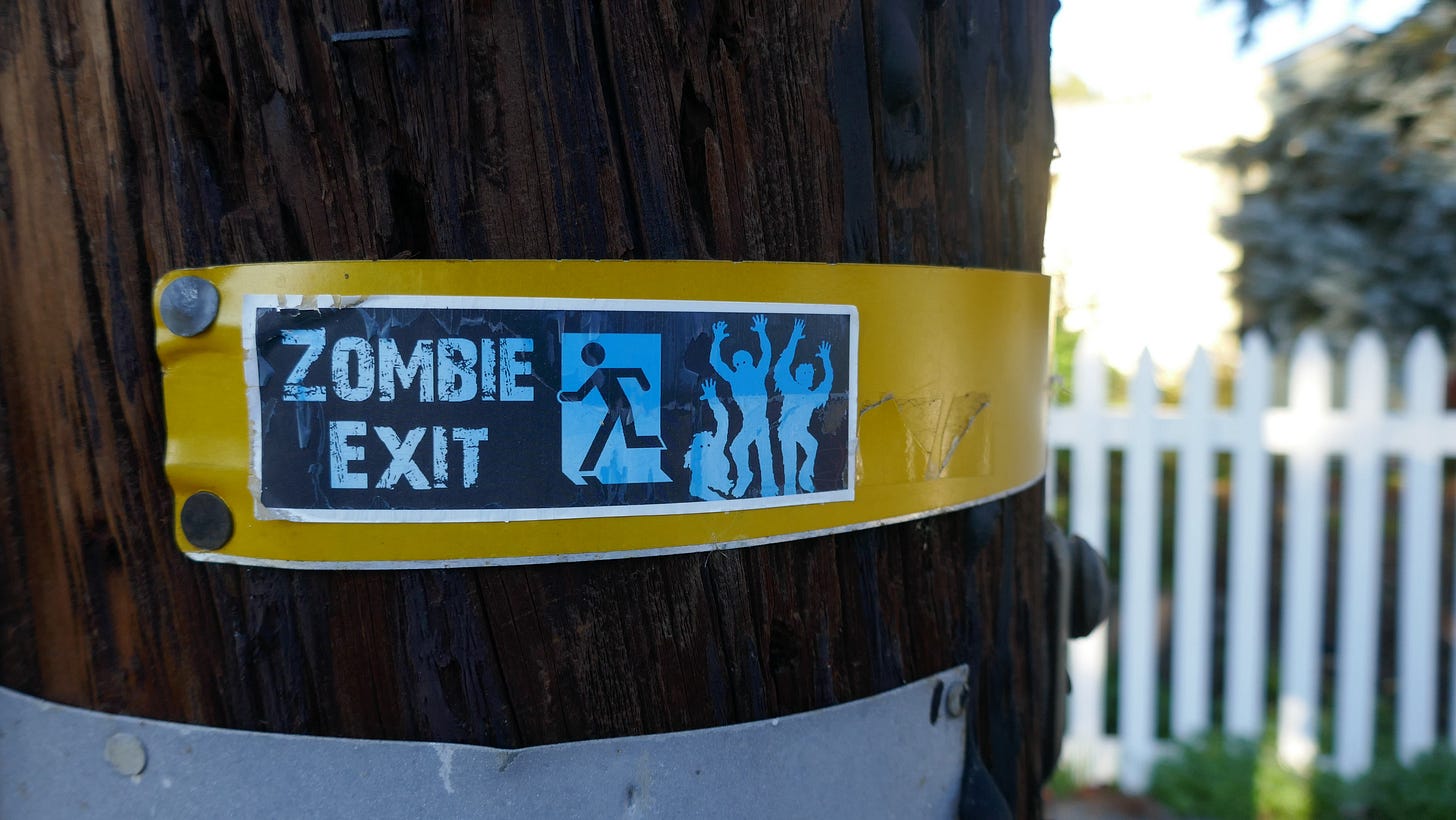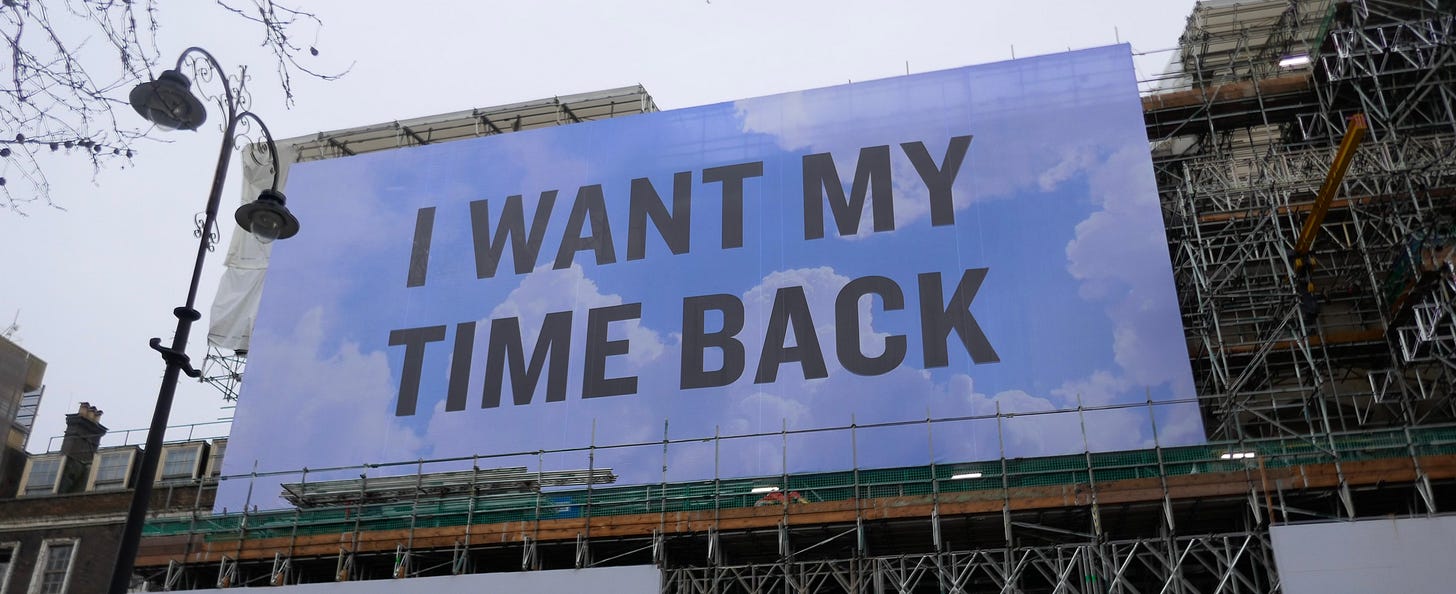My hope for productivity in 2025
tl:dr we're thinking about it all wrong.
As the end of the year approaches, reporters are starting to call to get quotes for year-end / New Year's pieces on work, rest, and the other things I write about. It's an occupational hazard as the author of REST and SHORTER, and I’m happy to help, if only because I know what it’s like to face a deadline.
In these conversations, and in my work with 4-day week companies, though, I’ve become convinced that the way we think about productivity (and productivity hacks) is fatally flawed. It’s not quite what Paul Krugman calls a zombie idea— “ ideas that keep being killed by evidence, but nonetheless shamble relentlessly forward, essentially because they suit a political agenda”— but given how much we talk about productivity, it’s important to understand how we now use the idea in ways that are, well, (paradoxically) counter-productive.
First, we need to stop thinking about productivity as a free-floating end in itself. Productivity is now capitalism's equivalent of body mass index— an idea that maybe has uses when correctly applied, but is damaging and exhausting when not. When productivity becomes an end in itself, it becomes an unattainable ideal, for which there is no obvious end point or conclusion. As the Lonely Island put it, you'll never stop never stopping. That’s not good.
Instead, we need to think about productivity as a means to an end, and think of it in more grounded, specific terms: being more productive at this particular task, or more efficient in running this meeting, not more productive as a signifier of our moral worth or sexiness in the marketplace or whatever.
Second, the concept of "productivity hacks" distracts us from the reality that we are asked to do more as workers and as parents, with less support from extended family or the state, than ever before-- and that if we fail to be ideal workers and ideal parents, we only have ourselves to blame. It tells us that we must find personal solutions to big structural problems-- like skipping avocado toast so you can afford the life-saving drugs for your child after the insurance company denies your claim.
This, in turn, places the blame for “failing” to be productive where it doesn’t belong— onto individuals— and absolving the real culprits— the systems in which we work. Working moms don't need tips and tricks, and they certainly don't need advice from a middle-aged man about how to better run their lives. What they need is a world that doesn't tell them that they should raise kids as if they don't work, work as if they don't have families, and blame themselves if they don't do both in effortless style and to some unknown but impossibly high standard. Overstretched dads don't need self-driving trucks that let them do video calls and multitask on the highway, like some optimized cybernetic cowboy; they need an economy that lets them create a stable life for their families, a company that doesn't perpetually threaten to outsource their jobs to China or Mexico, and a boss that don't expect them to be always-on and always-available.
Instead of trying to do it all, we need to recognize that we all share the same problems, we're all pressed or oppressed by the same forces, and that we can only come up with lasting solutions if we work together to solve these problems, especially in the workplace. Collective action is the most potent form of self-care.
Third, "productivity" is a great concept when you're working in a factory, or tilling a field; everywhere else, it tends to obscure more than it clarifies. I see clients in nonprofits or design firms struggle to come up with productivity measures all the time, in the hope that that will show them how to work better. For most organizations, "productivity" is at best a synonym for "good things," and at worst is a chimera. In creative work and services, productivity is like a black hole; we can study the environment around it, but we can’t get inside the thing itself. Talking about productivity in this broad way is like trying to use gaffer's tape to rebuild a transmission, or seal a smartphone: just because it's awesome for the right job doesn't mean it's useful everywhere.
Even if we can’t banish productivity as a concept, here’s my hope for 2025: that we start using the term in ways that don’t turn productivity into an unreachable ideal, create an infinite burden that we must shoulder as individuals, and keep us from actually doing better work and living better lives. Let’s not blame ourselves for not being as productive as we “should” be, especially in a world where should = infinity. And let’s recognize that if we want to solve big problems with work-life balance and efficiency and time pressure, we need to solve them together, not by ourselves.






This is excellent. Thank you for writing it.
Thank you for highlighting the ways individuals are tasked with somehow solving what are actually systemic problems 👍